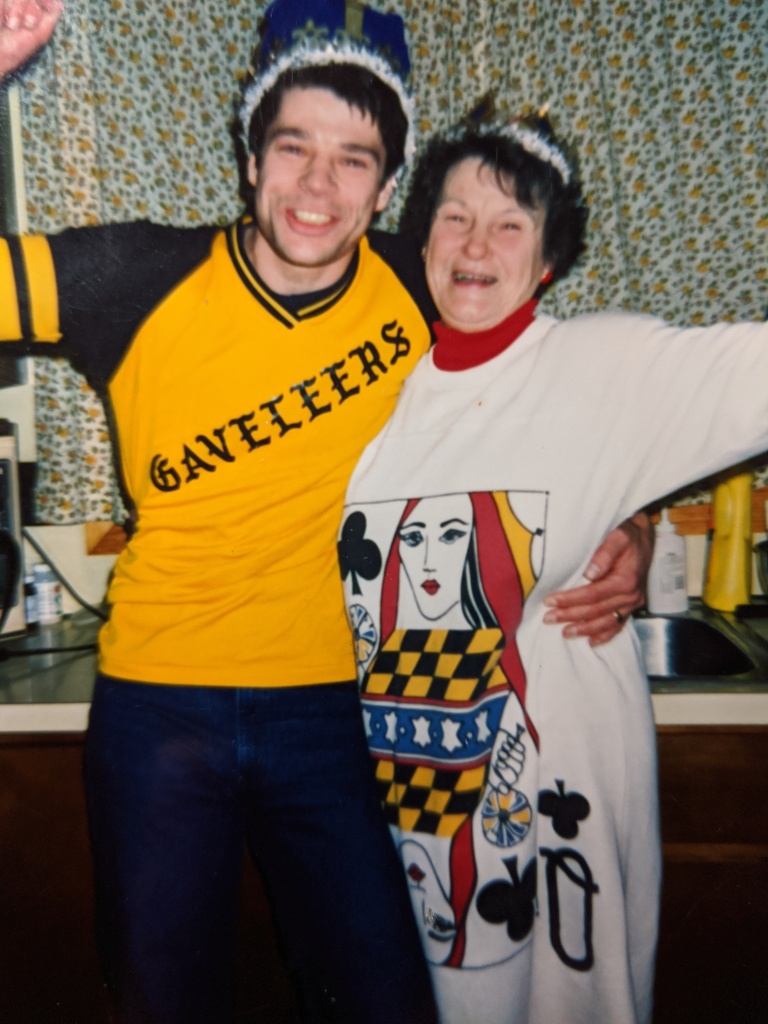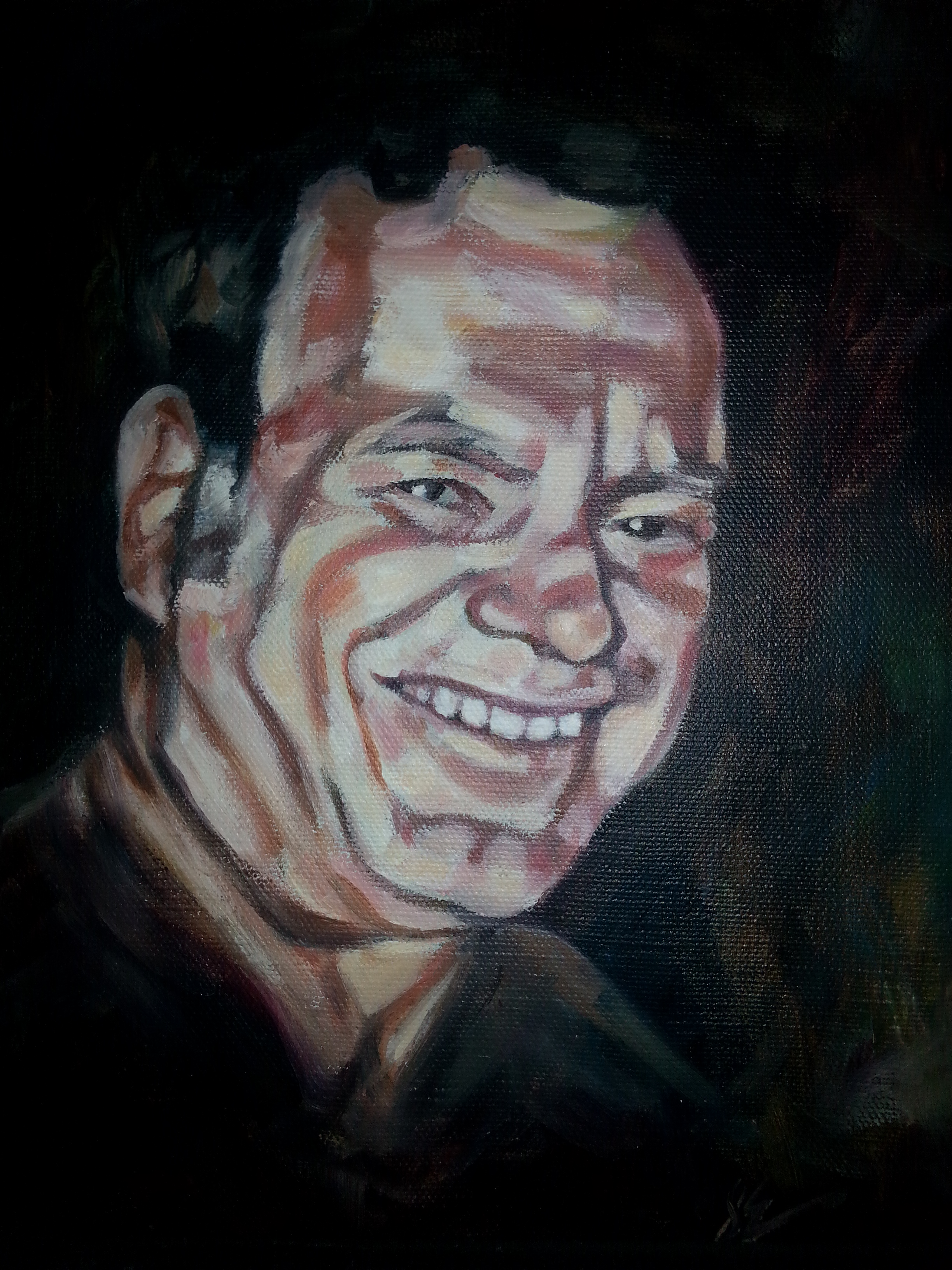One of the things my wife and I like to do together is attend performances at the Merrimack Repertory Theatre. We consider attending plays one of our better date activities because it provides us with an opportunity to break out of our normal routines and have engaging conversations together about the moments in the performances that stirred our emotions or stimulated our minds.
Recently we attended a two-man play called Best Summer Ever that was written and performed by Kevin Kling – an accomplished playwright, storyteller, and contributor to NPR’s All Things Considered. Kling is an ebullient personality and there is something childlike, mischievous, and endearing about him that works to win over his audiences from the start.
One of Kevin’s most admirable qualities is his attitude towards overcoming the physical disabilities that are a part of his life. He was born with a congenital birth defect that shriveled his left arm and left it without a wrist or thumb. Then, at the age of 44, Kevin was in a motorcycle accident that completely paralyzed his right arm and disfigured his face.
Kling is open about his disabilities and tries to explain, with humor, the blessings he has derived from his misfortunes and the benefits that can come from tackling life’s obstacles with faith and a positive attitude. His family and friends stood by him while he recovered from his motorcycle accident and years of rehab.
“It’s hard to deny the power of prayer when you’re on the receiving end of it. I know it helped me heal. At times it was like skiing behind a power boat — all I had to do was hang on… As terrible [as my injuries were] and as scared as I am sometimes, I still feel blessed. And when I get discouraged I just look at my two wiener dogs because they are the best example of a ‘can do’ attitude in a ‘can’t do’ body.
Kevin Kling
Kling separates the disabilities that we are born with from those disabilities we acquire later in life and he points out that being so-called “able-bodied” is always just a temporary condition – sooner or later we are all likely to suffer from life’s frailties. He feels that when you are born with a disability, you grow from it, but when you experience a loss later in life, you have to grow toward it; you need time to grow into the new person you haven’t yet become.
Kevin wrote “The Best Summer Ever” as a way of growing toward the new person he was becoming after his accident. He does this by going back and telling the heartwarming story of his 9 year childhood journey growing up as the son of Norwegian immigrants in rural Minnesota. Exploring his childhood from this perspective became a kind of therapy; helping him to find pieces from his past to fit, not the person he was, but the new person he was becoming.
There were two moments from the play that stood out in my mind as reflections of the kind of positive wisdom Kevin had to share about life with his audience:
We all have a deep desire to feel connected, no matter what age
There is a scene in the play where 9 year old Kevin tries his best to comfort his aging grandfather who is grieving the death of his brother. Kevin is trying to understand why his grandfather is so sad and comes to the realization that his grandfather must feel like an orphan now because his mother, father and all his siblings are now gone. He is the last one of his family left.
How must it feel when the people you had the strongest connection to throughout your life are no longer here? I wonder about my 93 year old mother. After living through the deaths of her mother, father and seven siblings, does she feel like an orphan in some way? Despite her many children and grandchildren, is she happily looking forward to re-establishing connections again with her family on the other side?
Kevin talks fondly about his grandparents and the role they played in his life, saying his relationship with them was one of his strongest connections and one that most shaped who he became:
“I connected with my grandparents. And I think we were in the same light. I mean, I was in the dawn, and they were in the twilight, but we were in the same light. And because of that, they were heading to the creator, and I was coming from the creator. And it seemed, because of that, we spoke a very similar language.“
Live so that your Light outlives you
At the conclusion of the play, Kevin is looking at a nighttime sky full of shining stars and marvels that since the stars are so far away it takes hundreds or thousands of years for their light to reach the earth. This means that those of us left on on earth will continue to receive light from the stars even after they are long dead.
Kevin believes that the light from people can live on after they die too. The good that we do, and the light we share will outlive us if we act to make a positive difference in the lives of the people we love and take meaningful action against the injustice we see in the world.
When Kevin looks up at those stars at night he is happy to feel the presence and memories of his grandparents and parents shining down on him. I hope when you look up at the stars, you too can take comfort and feel gratitude for the connections you had with your loved ones. But more important I hope you are living the kind of life that will continue to shine light long after you are gone. When you think about it, being a light for someone else is one way for us to become immortal.






